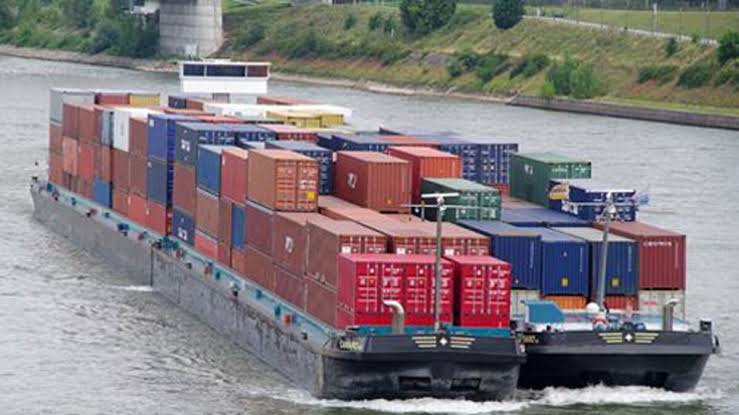
Checks by Shipping Position Daily have revealed a sharp disagreement between barge operators and the management of the Lekki deep seaport, as the parties clash over the introduction of barge operations in the strategic maritime hub.
Our correspondent gathered that the tussle raises concerns about the seamless movement of cargo in and out of the port; this is as the barge operators have accused the Lekki Deep Seaport of neglecting them.
In a chat with Daniel Eze, the Public Relations Officer of the Barge Operators Association of Nigeria (BOAN), he disclosed that barge operations have yet to kick off at the Lekki port this is even as he raised a red flag about what he perceives as a repeated mistake from the past, particularly at ports like Apapa and Tin Can. He argued that the management and concessionaires at the Lekki deep seaport had overlooked the crucial aspect of an intermodal transportation system, especially when it comes to integrating barges into their plans.
Eze emphasized, “Barge was not even there at all from the original master plan, and so, if you look at it, it’s going to be an afterthought.” This oversight poses a significant challenge, as there is no dedicated quay apron for barge operations. To make barge operations economically viable, they need larger vessels with capacities of 5,000 to 3,000 tons, unlike the common 1,000 to 1,500-ton barges currently used in Lagos. Smaller barges are ill-equipped to navigate the high currents of the Atlantic Ocean, within which the Lekki deep seaport is situated.
Eze stressed the need for cooperation between the port management and barge operators to make barge operations at Lekki a reality. He also emphasized the importance of empowering indigenous businessmen and avoiding the domination of foreign investors in the Nigerian economy.
Hajia Bola Muse, another barge owner, confirmed that the movement of cargoes via barges from the port has not yet commenced, indicating that discussions are still ongoing. Muse’s insight adds weight to Eze’s concerns about the slow progress of barge operations at Lekki port, highlighting the need for a swift resolution to these challenges.
In contrast, the Deputy Chief Operating Officer of the Lekki deep seaport Daniel Odibe affirmed that cargo movement from the port is planned to involve both barges and road transport stating that movement of cargoes by barges is in place at the port.
Also, the Chief Commercial Officer of Lekki Freeport Terminal, Kehinde Olubi-Neye, reported that the port has already executed over five barge moves, transporting more than 900 twenty-foot equivalent units of containers (TEUs) from Lekki Port to the Ikorodu area of Lagos suggesting that the potential for barge operations is not just a distant prospect but already in motion.
Olubi-Neye also revealed that the port has completed a truck park near the port with the capacity to accommodate 150 trucks stating that this will help alleviate congestion and streamline the movement of goods.
However, our correspondent gathered that the challenges of road transportation remain a concern, as confirmed by Bala Muhammed, the Administrative Secretary of the Association of Maritime Truck Owners. He pointed out that cargo movement by road primarily occurs at night to mitigate traffic congestion during the day. Muhammed stressed the need for dedicated truck service parks and systematic, electronic batch processes to improve the movement of containerized trucks.
He further said extortion is another issue faced by truck operators, as individuals claiming to represent various organizations set up checkpoints and demand illicit fees from drivers. Muhammed urged the government to address these extortion points promptly to ensure the seamless evacuation of cargo from the Lekki district terminal.















